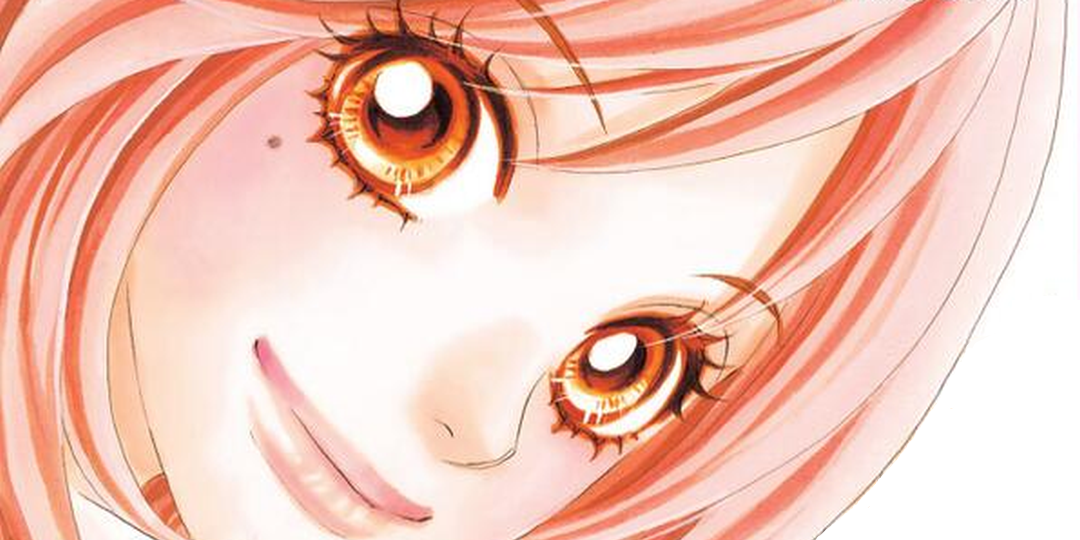
Also by this author: Pre Mari, Peach Girl, Papillon: Flower & Butterfly
My Thoughts
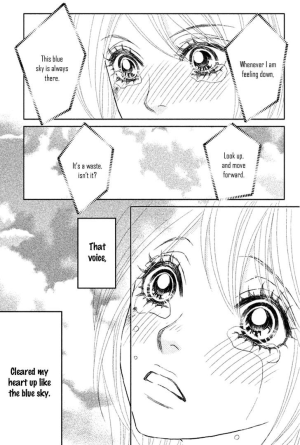 Love confessions are one of those things from my youth that I honestly miss. Confessing to the person that you have a crush on is nerve-wracking, and when looking back there are often so many missed opportunities. I remember the crushing feeling the first time I found out that a high school crush that I had been nursing for months ended up becoming a friend’s boyfriend. This happened a few times, I never felt sour about it but shrugged it off that I was just too slow to act on those feelings.
Love confessions are one of those things from my youth that I honestly miss. Confessing to the person that you have a crush on is nerve-wracking, and when looking back there are often so many missed opportunities. I remember the crushing feeling the first time I found out that a high school crush that I had been nursing for months ended up becoming a friend’s boyfriend. This happened a few times, I never felt sour about it but shrugged it off that I was just too slow to act on those feelings.
This feeling of being too slow forms the basis of Loco Moco. Hiroko feels that she has to keep up with her childhood friend, Tomoko, who seems to have a new boyfriend all the time, so she plays along and brags about having boyfriends as well. When Hiroko finally gathers up the courage to confess to her crush, however, she finds out that her crush is her friend’s new boyfriend.
“Roko-chan, have you tried getting confessed to?”
Loco Moco is a short and sweet series about this predicament, about missed opportunities and trying to cope with a crush that has now become unattainable. While Takeru also has a mild interest in Hiroko, it’s understandable that he dates that cute girl that confesses to him. While the drama between Hiroko and Tomoko could at times be petty, it is understandable when they both realize that the other is a romantic rival.
While Roko and Tomo butt heads at times, their friendship remains intact, and they choose to do what’s best for their friend which made me happy to see a good female friendship take precedence over one’s romantic feelings. There are a few character traits that seem to reappear in all of Ueda’s series, namely the protagonist having a complex about being misunderstood for a physical trait and having a jealous best friend.
I’m glad that I didn’t give up on Ueda’s work, I love her art and characters, but I honestly got mad with the last two Ueda works that I had read. Compared to other works by Miwa Ueda, Loco Moco is relatively tame which I feel made it better. It’s an underrated gem that tackles the drama that comes with crushing on a friend’s boyfriend with relative maturity.
Rating:


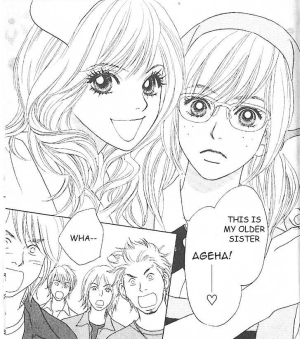 What a disaster, a downright sloppy mess with an awful plot and annoying characters. Papillon is a drama filled teen romance manga about competing twins that tries to dig into some touchy subjects like insecurity, childhood abandonment, post-partum depression, and traumatic loss.
What a disaster, a downright sloppy mess with an awful plot and annoying characters. Papillon is a drama filled teen romance manga about competing twins that tries to dig into some touchy subjects like insecurity, childhood abandonment, post-partum depression, and traumatic loss.

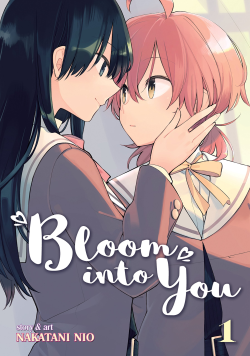 Title: Bloom into You, Vol. 1
Title: Bloom into You, Vol. 1
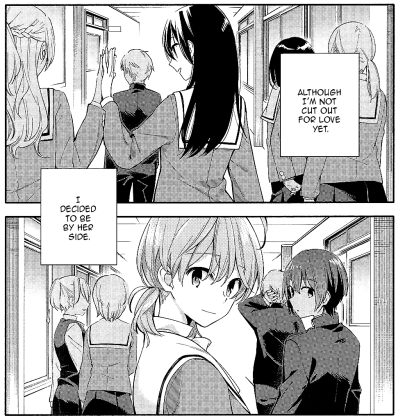 Bloom Into You is, without a doubt, one of the best coming of age love stories that I’ve ever read. Yuu is a young girl that dreams of experiencing the dazzling love that she sees in books and film. Despite this, she doesn’t find herself feeling at all excited when faced with romantic prospects. There is also some wonderful aromantic and demiromantic representation that I didn’t expect to find in this manga, and the subtle differences between each are written well.
Bloom Into You is, without a doubt, one of the best coming of age love stories that I’ve ever read. Yuu is a young girl that dreams of experiencing the dazzling love that she sees in books and film. Despite this, she doesn’t find herself feeling at all excited when faced with romantic prospects. There is also some wonderful aromantic and demiromantic representation that I didn’t expect to find in this manga, and the subtle differences between each are written well.
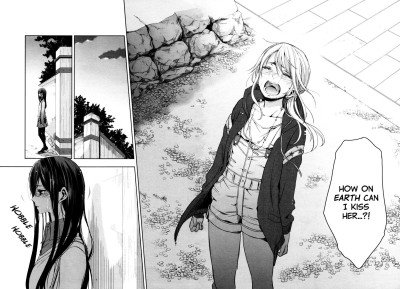 Citrus had been on my radar for a while being one of the more well-known Shoujo Ai manga available in the west. I finally sat down to read it and found myself feeling conflicted about it. The art is spectacular and the manga is worth reading to appreciate that in itself. The characters and the story can be charming and genuinely heartfelt at points, and horribly cliche and boring at other points. My ratings for each volume ended up moving up and down wildly and left me wondering how much I really enjoyed it.
Citrus had been on my radar for a while being one of the more well-known Shoujo Ai manga available in the west. I finally sat down to read it and found myself feeling conflicted about it. The art is spectacular and the manga is worth reading to appreciate that in itself. The characters and the story can be charming and genuinely heartfelt at points, and horribly cliche and boring at other points. My ratings for each volume ended up moving up and down wildly and left me wondering how much I really enjoyed it.

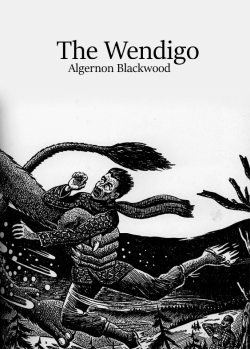 Title: The Wendigo
Title: The Wendigo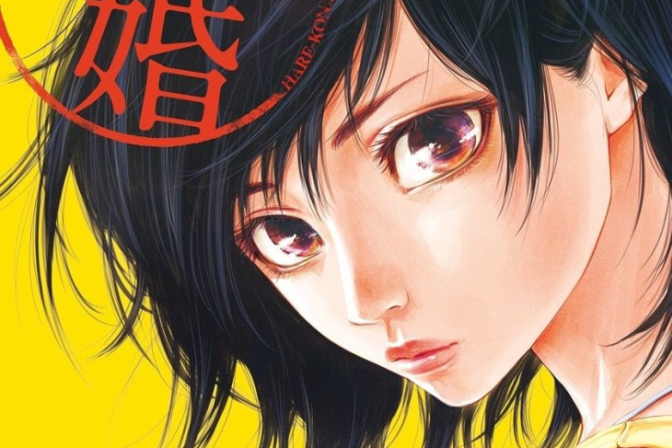
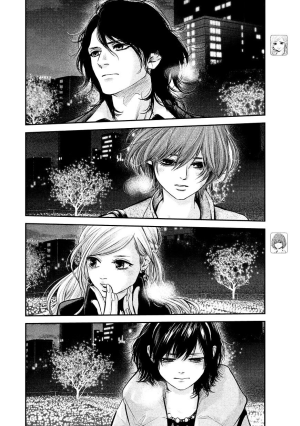 Harems are a dime a dozen in the world of anime and manga, portrayed as the ultimate male fantasy and often played for laughs, it’s a trope that is riddled with issues while not portraying polygamy with any real accuracy beyond gratuitous sex. For some, polygamy is an alternative lifestyle that can be fulfilling and painful for others.
Harems are a dime a dozen in the world of anime and manga, portrayed as the ultimate male fantasy and often played for laughs, it’s a trope that is riddled with issues while not portraying polygamy with any real accuracy beyond gratuitous sex. For some, polygamy is an alternative lifestyle that can be fulfilling and painful for others. To say that this series is frustrating is an understatement, there are many issues with the way that the story is presented spearheaded by a husband that is unabashedly detestable at times. Ryuunoske could be charming and funny, but he is also extremely selfish and manipulative. Koharu “falling in love” was also extremely weak, she goes overnight from hating that she feels forced into a sham marriage to suddenly deciding that her unhappiness must mean that she’s jealous and in love.
To say that this series is frustrating is an understatement, there are many issues with the way that the story is presented spearheaded by a husband that is unabashedly detestable at times. Ryuunoske could be charming and funny, but he is also extremely selfish and manipulative. Koharu “falling in love” was also extremely weak, she goes overnight from hating that she feels forced into a sham marriage to suddenly deciding that her unhappiness must mean that she’s jealous and in love.